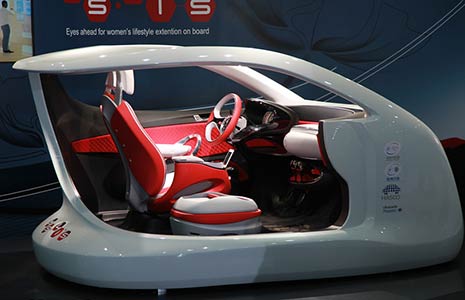Land use a never ending debate
By Raymond So from Hong Kong (China Daily) Updated: 2012-11-22 13:37
|
 |
Critics are saying that as Hong Kong does not have enough land for residential purposes, this is causing housing prices to rocket sky high in Hong Kong. When the old Kai Tak airport was still in the Kowloon area, because of the heavy air traffic, the buildings in the area faced height restrictions. After the airport was relocated to Chek Lap Kok, the buildings' height limits were lifted. Subsequently, many old buildings were torn down and new ones erected in their place, changing the skyline with tall skyscrapers.
Now, the Kai Tak airport land, strategically located in the heart of Kowloon, has become a good site for redevelopment. Many have madevarious suggestions on the future land use. Finally, it was resolved that a huge sports stadium, with a capacity of over 50,000 people, would be built there by 2019 under existing plans.
When some raised the issue that the Kai Tak Area can be used for building more residential units with modifications to the stadium plans, it caused an uproar, reflecting the constraints faced by the city as it does not have sufficient urban land, making any choice difficult.
But now the government has decided to quieten the discussion by reaffirming the Kai Tak Sports Stadium's construction.
However, this does not mean that there will be no more differences in opinions and views over land use. Instead, I foresee that the debate on land use and sports usage will continue and can even become more heated in the near future.
With the construction of a new sports stadium at Kai Tak, the existing Hong Kong Stadium at So Kon Po will see a transformation of its usage. Given the 400,000 seating capacity at the Hong Kong Stadium, the construction of another sports stadium at Kai Tak will raise the concern of over capacity. According to the government, the Hong Kong Stadium may be used for high schools' athletic meets. This will mean some other sports facilities in Hong Kong may become idle, given the Hong Kong Stadium's future functions will overlap with that of some existing facilities.
Currently, the Wan Chai Stadium is located near the Hong Kong Convention and Exhibition Centre. The site of the stadium is being eyed by developers because it is located in the heart of the city, and has a marvelous sea view. If the land can be used for constructing commercial buildings or hotels, the value can be as high as HK$15,000 per square feet. Besides developers, the Hong Kong Convention and Exhibition Centre (HKCEC) is pitching for it, saying it do not have enough space to entertain customers' requests. The HKCEC has made requests to extend the construction of its exhibition facilities already. Surely the Wan Chai Stadium is within the radar of their land search.
In the past, many high schools held their athletic meets at the Wan Chai Stadium. According to some polls conducted by legislators, over 60 percent of responding schools prefer the Wan Chai stadium over the Hong Kong Stadium. So if the Wan Chai Stadium was to be demolished, the opposition from these groups cannot be underestimated. Also, the cry for more open areas instead of building infrastructures is getting greater momentum in today's society. So any plan to demolish the Wanchai stadium is likely to provoke huge controversy.
When we have to take non-economic factors into consideration, land re-development cannot be evaluated solely on economic rationalities. This is not an easy job and the worst is yet to come.
The author is dean, School of Business at Hang Seng Management College. The views expressed here are entirely his own.
- China's trade with Belt and Road countries surpasses $1 trillion in 2015
- China recruits 3,900 volunteers for Hangzhou G20 summit
- China's capital market will better serve supply-side reforms
- Baidu and Huawei nominated as world's smartest companies
- US states woo Chinese investors
- Manufacturing holds key to Industry 4.0
- BAIC to be Benz's top partner
- Chinese software outsourcers shift to the cloud


















